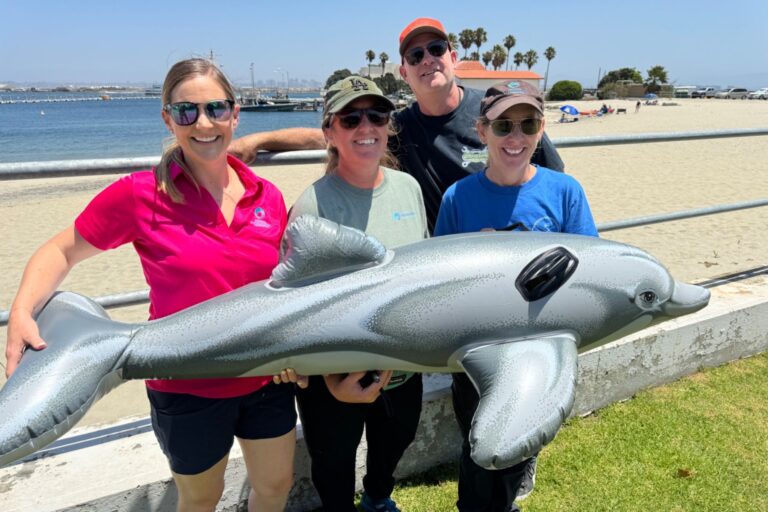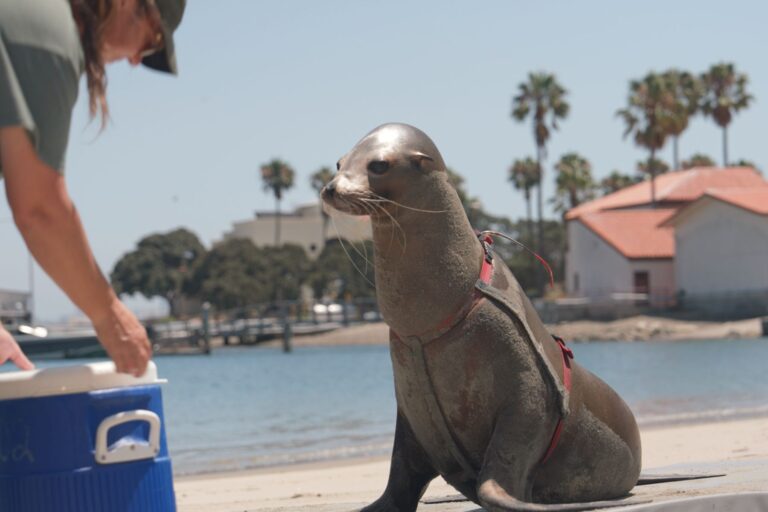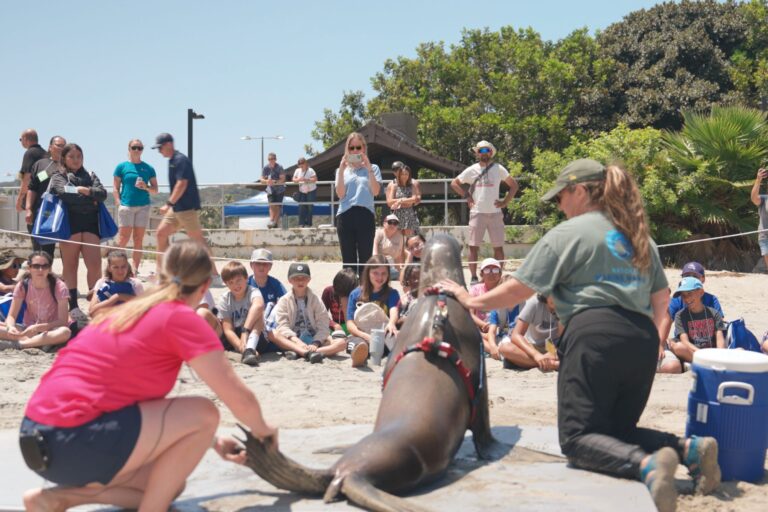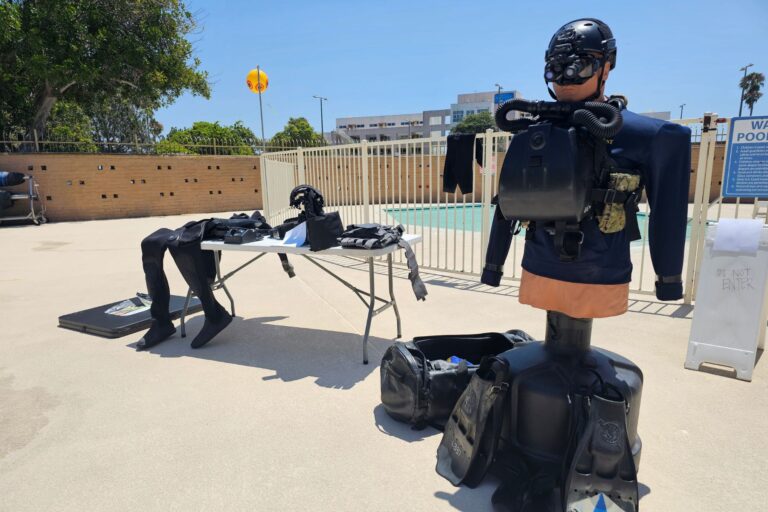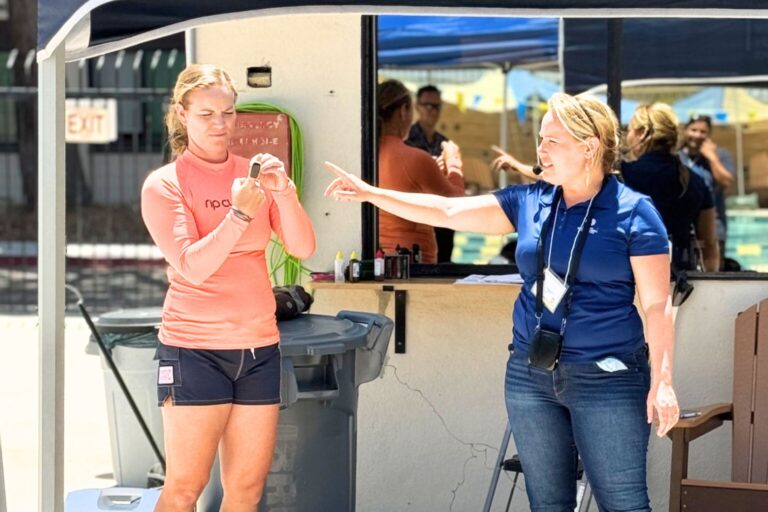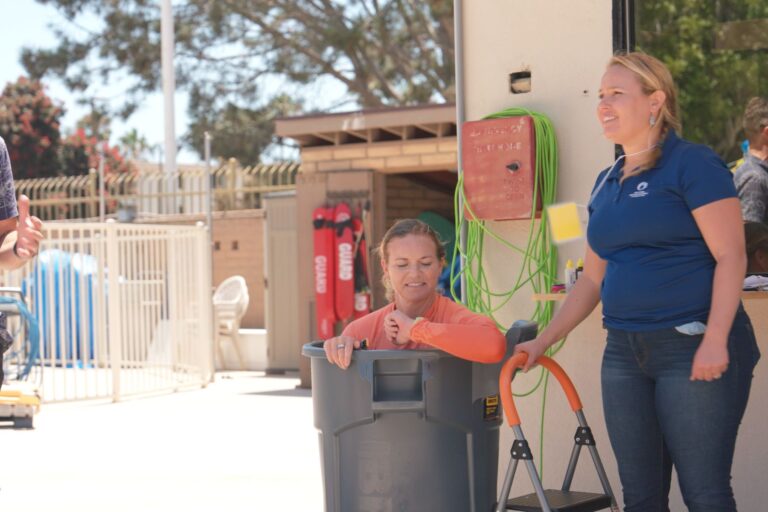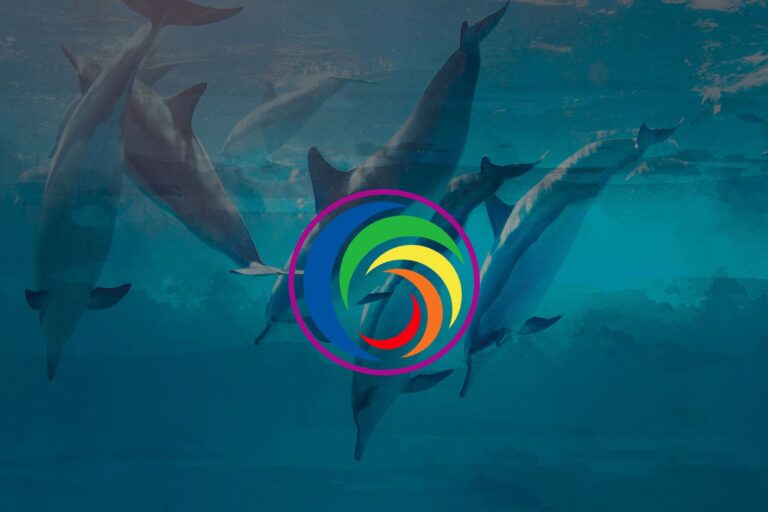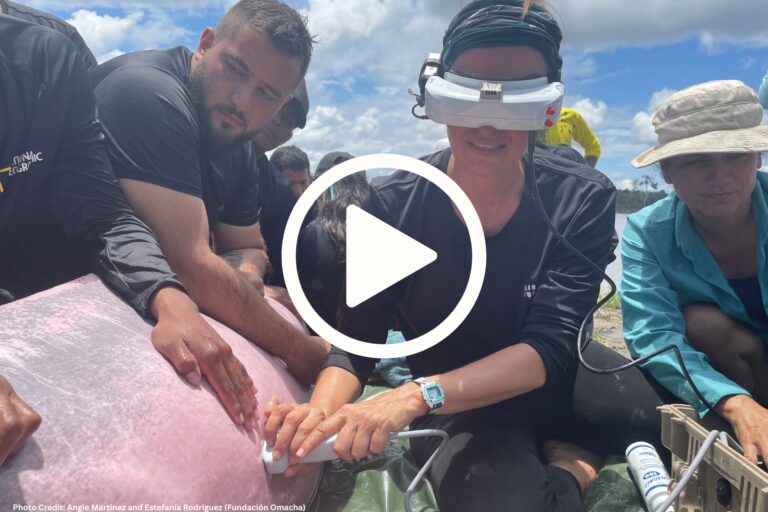San Diego, CA – This summer, the National Marine Mammal Foundation (NMMF) held an in-person Seal to SEAL workshop, bringing together local students, Navy SEALs, and sea lions for an exciting hands-on learning experience at Naval Base Point Loma. The annual program, funded by the Office of Naval Research (ONR), aims to inspire the next generation of ocean stewards by teaching students about marine mammal diving abilities, human physiology, and ocean conservation through engaging STEM activities.
The 2024 Seal to SEAL workshop drew approximately 40 students and their parents, most of whom are connected to the military, either as part of military families or through SEALKIDS. These students often face unique challenges as military dependents or children of Navy SEALs, such as frequent relocations, long parental deployments, and the emotional impact of having a parent in a high-risk role. They had a chance to experience firsthand the connection between Navy divers and the Navy’s marine mammals, sparking curiosity and excitement about STEM subjects.
Hands-On Science in Action
From the moment the students arrived, the learning was immersive. The workshop started with basic biology: “What is a mammal?” From there, students participated in interactive experiments that explored the effects of pressure using bell jars, balloons, and marshmallows. The students were encouraged to ask questions and form hypotheses, a fundamental part of inquiry-based learning aligned with Next Generation Science Standards (NGSS).
Students also participated in a hands-on “blubber lab” where they learned how marine mammals stay warm in cold waters. Afterward, Dr. Peter Lindholm, an ONR-funded research scientist from UC San Diego, led a live ultrasound demonstration showcasing his research on human decompression sickness and diving physiology. These activities helped students make connections between marine mammals and human divers, fostering a deeper understanding of the challenges both face underwater.
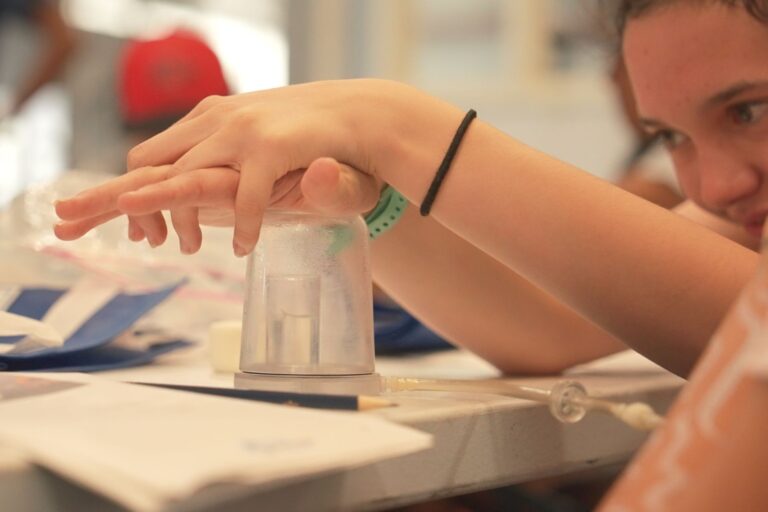
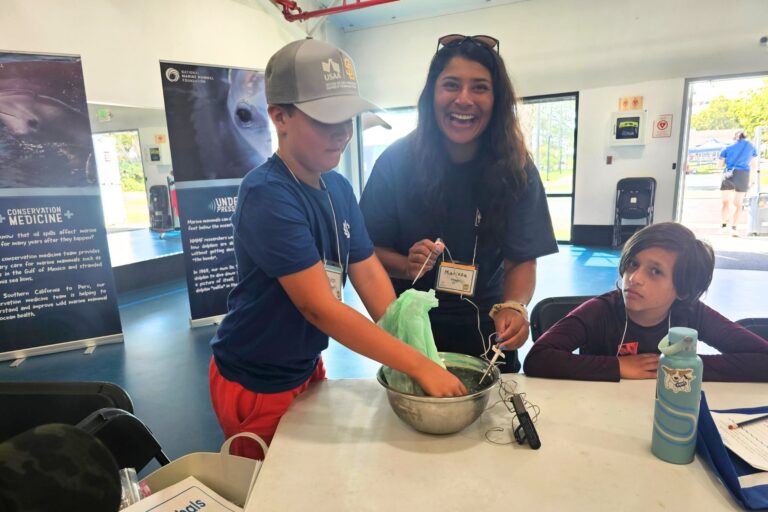
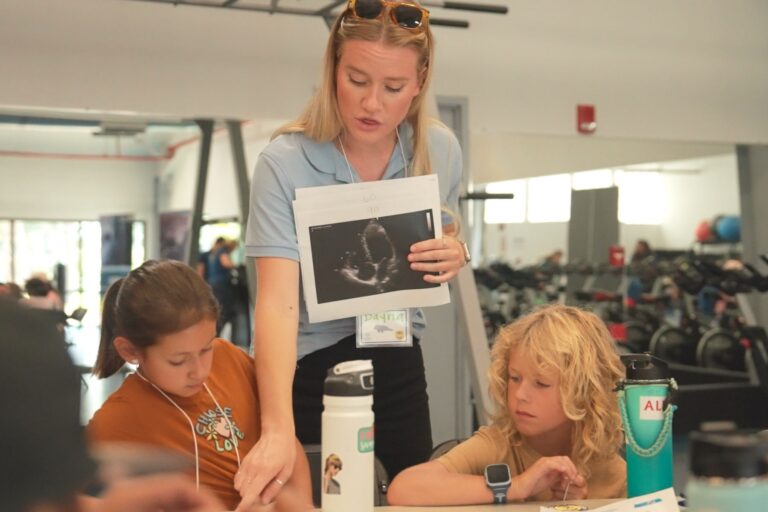
Learning from Navy SEALs and Sea Lions
One of the highlights of the day was a sea lion demonstration on the beach. Students observed the sea lion’s natural diving adaptations and compared them with a Navy diver’s gear and physiology. The sea lion, part of the U.S. Navy Marine Mammal Program, showcased its swimming and walking abilities while NMMF animal care experts explained how these incredible adaptations are essential to Navy operations. Dr. Barb Linnehan, Dr. Amber Ramos, and Jenn Cull from the NMMF Veterinary and Animal Care teams also conducted a health exam on the sea lion, illustrating how the animals play an active role in their own health care through training exercises and behavioral activities.
Later, students learned from Navy SEALs, who showcased swimming techniques and diving methods. They tried on SEAL gear and practiced tying knots. Dr. Abby McClain from NMMF explained the mammalian dive response, showing that both human and marine mammal heart rates slow in water to conserve oxygen, a crucial adaptation for deep dives.
A Community Effort for a Brighter Future
This workshop was made possible through years of collaboration with partners such as Naval Special Warfare, UC San Diego, and the University of North Carolina at Chapel Hill. It also couldn’t have been achieved without the support of our dedicated volunteers, who helped facilitate activities and provided valuable science communication experience.
Looking ahead, NMMF is excited to continue the Seal to SEAL program, with ONR funding supporting ten field trips per year for the next three years. These field trips will bring students from historically underrepresented minorities, Title 1 schools, and military-connected schools to the Navy base, where they will engage in STEM education and learn about marine mammal care and ocean conservation.
By inspiring students through interactive learning and hands-on science, we hope to foster a new generation of ocean advocates and STEM leaders who will carry forward the legacy of conservation and exploration.
Stay tuned for more updates, and don’t forget to check out our complementary online Dolphin Doctor course to keep the learning going!
